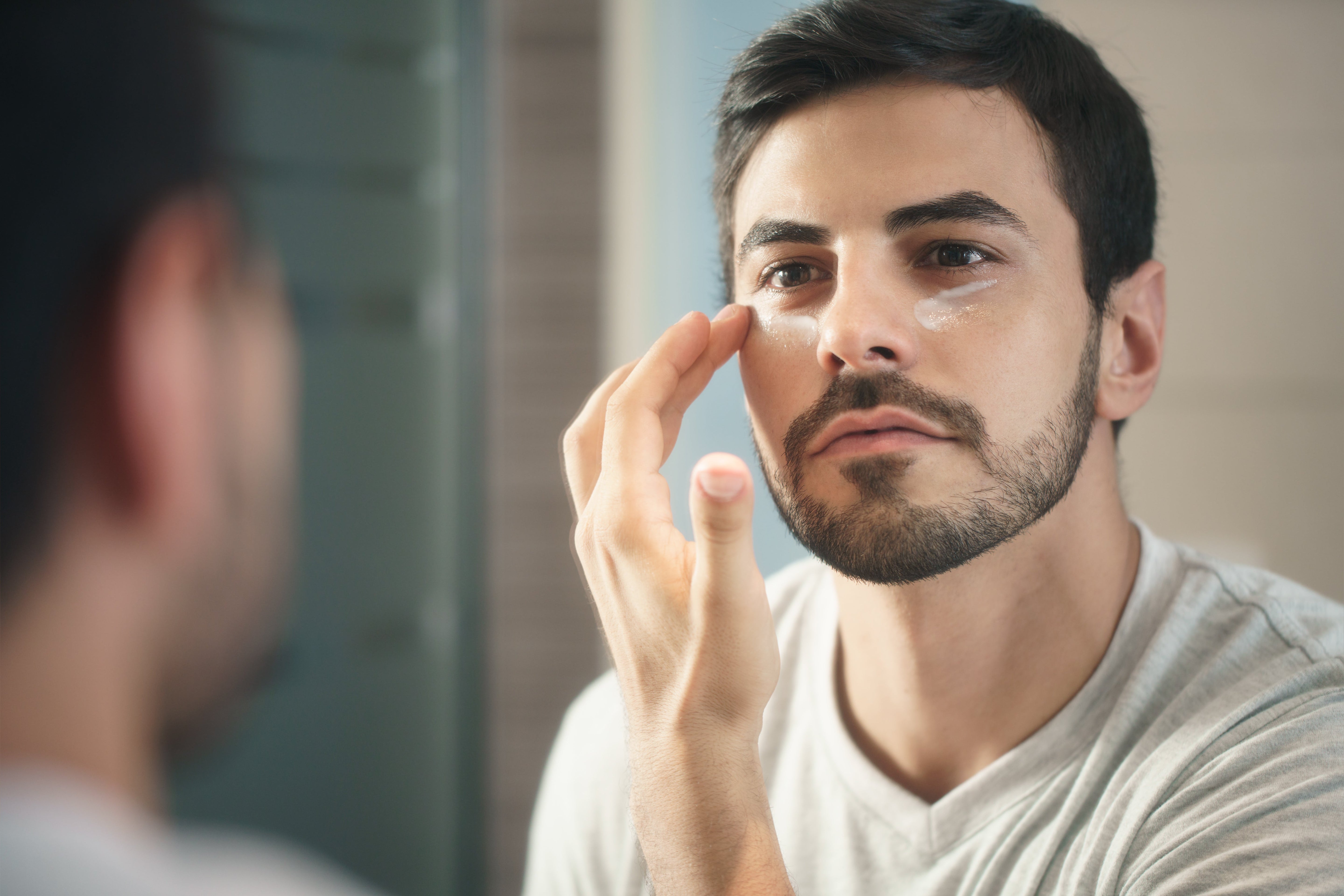
Understanding MCAS: Causes, Symptoms, Treatments
Dr. Tahani Williams, M.D.
Mast Cell Activation Syndrome (MCAS) can cause a confusing mix of symptoms. Understanding what’s happening inside your body is the first step to feeling better.
Together, we’ll review MCAS is, what causes it, and how you can manage it. We’ll also touch on how your personal care products can alleviate or aggravate sensitive skin conditions.
What is MCAS?
MCAS occurs when a special kind of immune cell (known as a “mast cell”) releases chemicals like histamine too easily and too often.
Instead of helping your body heal or fight off germs, these mast cells overreact and cause a wide range of symptoms throughout the body.
MCAS was only recently officially recognized in the last twenty years (Afrin, 2013). As a result, millions may be living with it today without knowing it.
Common Symptoms of MCAS
MCAS symptoms can affect almost every system in your body. This makes MCAS difficult to diagnose.
If you suspect you have MCAS, here are some signs to watch for:
- Skin: Hives, flushing, itching, swelling
- Gut: Nausea, diarrhea, acid reflux, bloating
- Lungs: Wheezing, coughing, shortness of breath
- Heart: Rapid heartbeat, low blood pressure, dizziness
- Brain: Brain fog, headaches, fatigue, anxiety
- Other: Muscle pain, joint stiffness, bladder irritation
Symptoms often flare up randomly or after exposure to certain triggers like food and stress. Even the fragrances found in everyday personal care products, such as those for skin and hair, can make symptoms more severe.
Causes of MCAS
Scientists believe MCAS doesn’t have a single cause. Instead, it's usually a mix of different factors.
Genetic factors may lead to MCAS. Some people inherit genes that make their mast cells hyperactive. For instance, Hereditary Alpha Tryptasemia (HAT) is a genetic condition linked to MCAS (Lyons et al., 2016).
Environmental triggers may also be an issue. The most common environmental triggers for MCAS are:
- Certain foods (like aged cheese, alcohol, vinegar)
- Chemical exposures (cleaning products, perfumes)
- Temperature changes (cold, heat)
- Physical pressure (tight clothes)
Chronic infections like Lyme disease or Epstein-Barr virus can keep the immune system overstimulated (Afrin, 2016). This could lead to MCAS.
Autoimmune conditions, including lupus or rheumatoid arthritis, can worsen mast cell overactivity.
Emotional or physical stress can also activate mast cells through chemical signals like CRH (Theoharides et al., 2012).
Finally, hormonal changes, like shifts in estrogen levels, may make mast cells even more sensitive in some people.
Diagnosis of MCAS
Doctors look for three main clues when diagnosing MCAS (Valent et al., 2019):
- Symptoms affecting multiple parts of the body
- Lab tests showing elevated mast cell mediators (like tryptase, histamine)
- Response to mast-cell-targeted treatments
Since MCAS is still underrecognized, finding a knowledgeable specialist can make a big difference. Always discuss your symptoms with your primary care provider. In turn, they may refer you to an allergist or hematologist for further testing and diagnosis.
MCAS Treatment Options
Managing MCAS is all about calming the immune system, blocking overreactions, and avoiding known triggers.
1. Avoid Triggers
- Follow a low-histamine diet
- Reduce stress and avoid temperature extremes
- Choose fragrance-free personal care products that leave out common irritating ingredients
2. Medications
Doctors often recommend combining different medications to treat MCAS:
- H1 Antihistamines (cetirizine, loratadine)
- H2 Antihistamines (famotidine)
- Mast Cell Stabilizers (cromolyn sodium, ketotifen)
- Leukotriene Inhibitors (montelukast)
- Biologics (like omalizumab for severe cases)
3. Natural Supports
- Quercetin: A natural mast cell stabilizer
- Vitamin C: Helps break down histamine
- Omega-3s and Magnesium: Anti-inflammatory helpers
If you’re looking to alleviate MCAS symptoms using natural supplements, always discuss it with your doctor!
4. Lifestyle Adjustments
- Gentle exercise (walking, stationary bike, swimming, stretches)
- Prioritize sleep
- Follow mindfulness practices like deep breathing or meditation
Sensitive Skin and MCAS: Why Your Products Matter
People with MCAS often have very reactive skin.
Everyday products that contain fragrances, harsh chemicals, or preservatives can easily trigger symptom flare-ups.
That’s why choosing truly hypoallergenic, clean products is so important for those living with MCAS.
Do you have sensitive skin? Watch for these six signs.
Spotlight: Cleure Sensitive Skin Personal Care Products
Cleure specializes in ultra-gentle, non-toxic personal care designed for people with sensitive systems. This makes Cleure products a perfect fit for those with MCAS.
Here’s why Cleure is different:
- Fragrance-Free
- Sulfate-free
- Paraben-free
- No formaldehyde
- No phthalates
- Minimal, transparent ingredients
- Dermatologist-recommended for sensitive skin
Cleure Must-Haves for Sensitive Skin and MCAS
1. Cleure Fragrance-Free Shampoo: Get clean hair free of harsh chemicals that may irritate your scalp! Gentle enough for daily use, without hidden irritants that sneak into most shampoos.
2. Cleure Sensitive Skin Moisturizer: Hydrate without heavy chemicals. It’s perfect for calming dry, sensitive, or flushed skin.
3. Cleure Fluoride-Free Toothpaste: Cleure toothpaste is formulated without fluoride, SLS, or mint—common triggers for MCAS patients.
4. Cleure Body Lotion for Sensitive Skin: Restore your skin barrier naturally. Cleure body lotion is rich, hydrating, and ultra-clean.
What’s the most important thing to remember when treating MCAS?
Start small! Swap out your everyday essentials like toothpaste and shampoo first. Even small changes can make a huge difference for calming down mast cells.
Shop Cleure’s Sensitive Skin Collection
While living with MCAS isn’t easy, you can still take control.
Understanding your condition, avoiding triggers, and calming your immune system are key. Your body is strong. It’s just asking for a little extra kindness.
By making thoughtful product and lifestyle choices, you can live a healthier, happier life.
See Our Body Care Routine for Sensitive Skin
References:
- Afrin, L.B. (2013). Mast Cell Activation Syndrome: A Newly Recognized Disorder with Systemic Clinical Manifestations. Journal of Hematology & Oncology, 6(1), 32.
- Valent, P., Akin, C., & Arock, M. (2017). Definitions, Criteria and Global Classification of Mast Cell Disorders: A Consensus Proposal. International Archives of Allergy and Immunology, 157(3), 215–225.
- Theoharides, T.C., et al. (2012). Stress, Mast Cells, and Autoimmune Disease. Frontiers in Immunology, 3, 170.
- Lyons, J.J., et al. (2016). Elevated Basal Serum Tryptase Identifies a Multisystem Disorder Associated with Increased TPSAB1 Copy Number. Nature Genetics, 48(12), 1564–1569.
- Valent, P., et al. (2019). Mast Cell Activation Syndromes: Definition and Diagnostic Criteria. Allergy, 74(10), 1966–1970.



Leave a comment
This site is protected by hCaptcha and the hCaptcha Privacy Policy and Terms of Service apply.